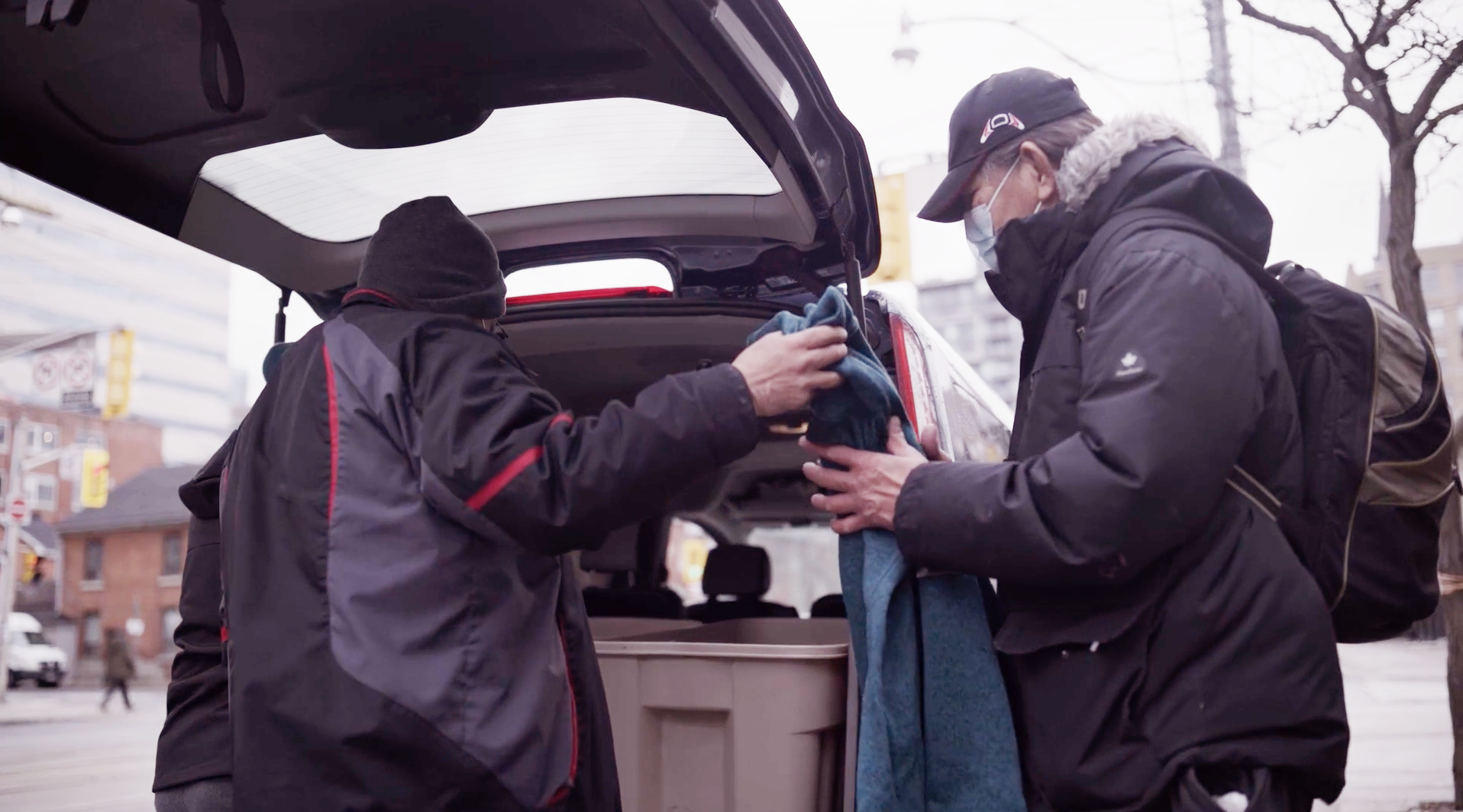
Street Outreach & Support Services
This service provides indigenous-specific outreach services using a mobile approach with support workers and Elders. They engage with male and female Indigenous homeless clients to secure housing, develop a crisis plan, access services, and foster a greater sense of cultural awareness.
Housing Support Services
Support for our clients doesn’t stop once they’ve transitioned to permanent housing. Our Housing Aftercare and Big-Eya-Waah-Anduyaun programs have teams of dedicated workers that offer a wide range of support from eviction prevention and housing maintenance to mental and physical health, community integration, spiritual needs, and general support.
The overall goal of these programs is to ensure that homeless individuals effectively transition into housing and build their stability by addressing all elements of their health and well-being using an indigenous approach.
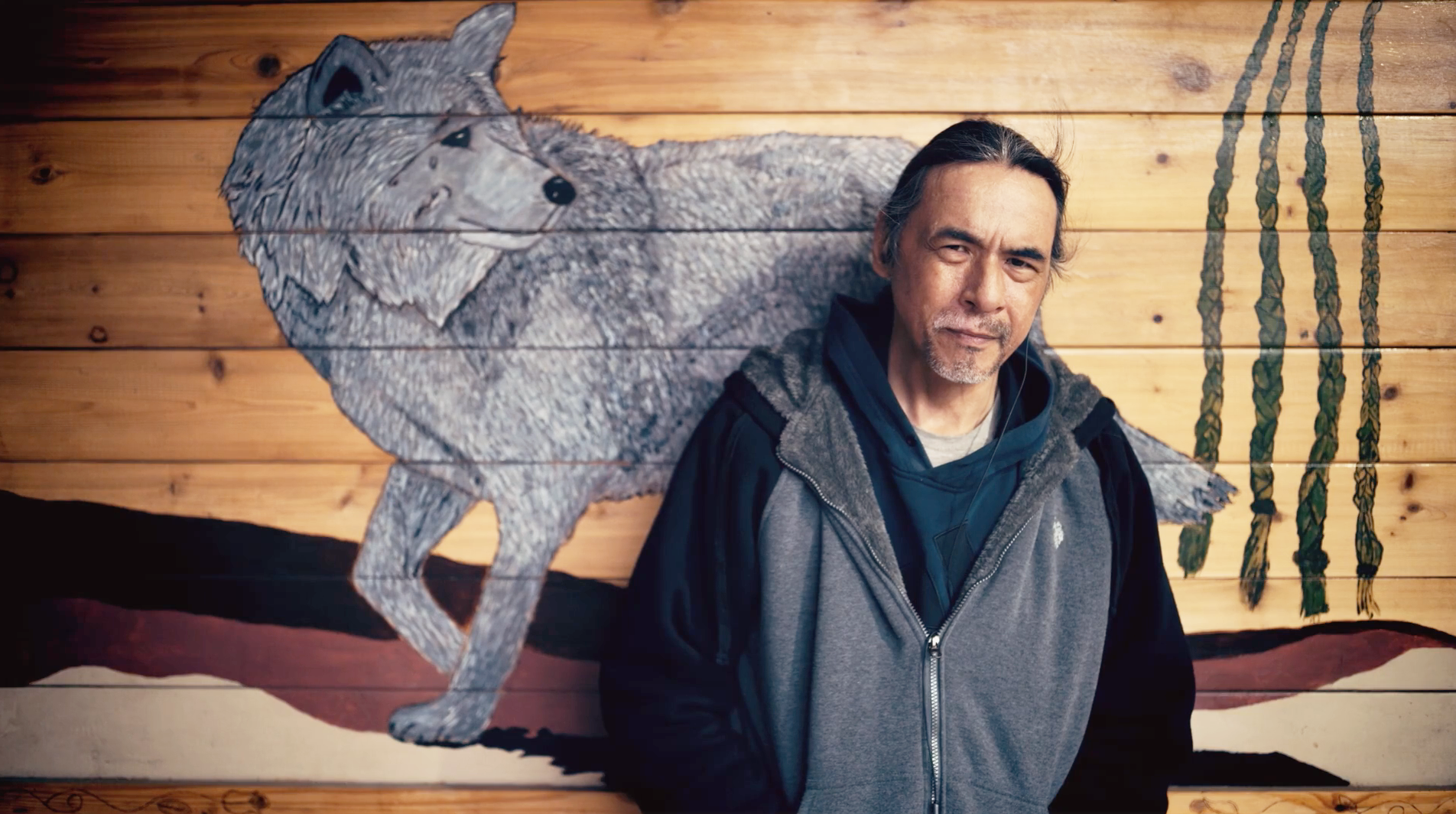
Mino Kaanjigoowin: Changing My Direction In Life
Mino Kaanjigoowin means finding the good to change yourself or your direction in life. This intensive program helps clients with severe mental illness or addiction issues. From a holistic perspective, we meet the men where they’re at, weaving in connection to culture and spirituality through the Medicine Wheel teachings to support them along their path. As with all Na-Me-Res programs, we help men find housing and create a life with the right direction.
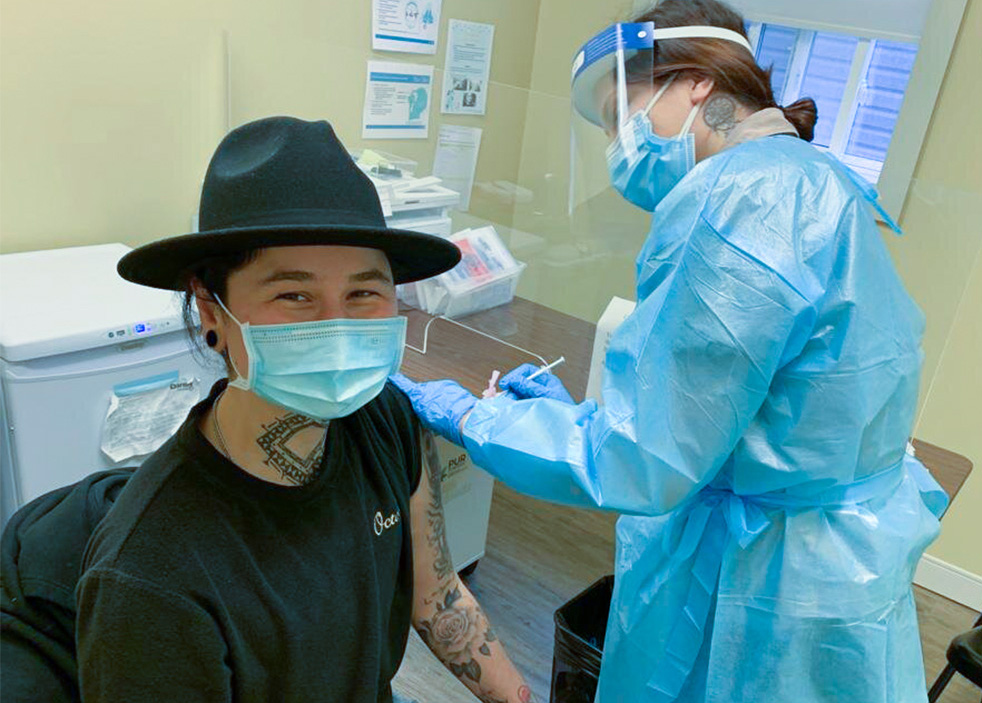
Auduzhe Mino Nesewinong
Auduzhe Mino Nesewinong (Place of Healthy Breathing) is an evolving Indigenous Interdisciplinary Primary Care Team that began through a partnership with Native Men’s Residence, Seven Generations Midwives Toronto (SGMT), and Well Living House, as a response to the disparities affecting the FNIM population during the COVID-19 pandemic. The ongoing gaps in access to culturally safe and effective wholistic primary care leave more than 24,000 FNIM without a provider, subsequent gaps in preventative care, and a higher burden of disease and mortality. As a result, Auduzhe has been advancing to include vaccination, preventative, episodic and primary care to aim to meet the voiced needs of the community. Over the past 3 years, Auduzhe has been at the forefront of developing and delivering culturally safe access to urgent health and social supports, testing, contract tracing, case management and access to treatment with a small team and even smaller budget. Auduzhe focuses on disease prevention, vaccines across the lifespan, health promotion, wholistic care, and data sovereignty, through outreach partnerships, home visits, and on-site healing.
Auduzhe was recently approved for Ministry of Health Funding to become an Indigenous Interdisciplinary Primary Health Care team in Toronto. If you are FNIM looking for a primary care provider please get in contact with us by email (auduzhe@nameres.org) or phone (416-654-4184)
Hours:
Monday – Friday: 9:00 a.m. – 5:00 p.m
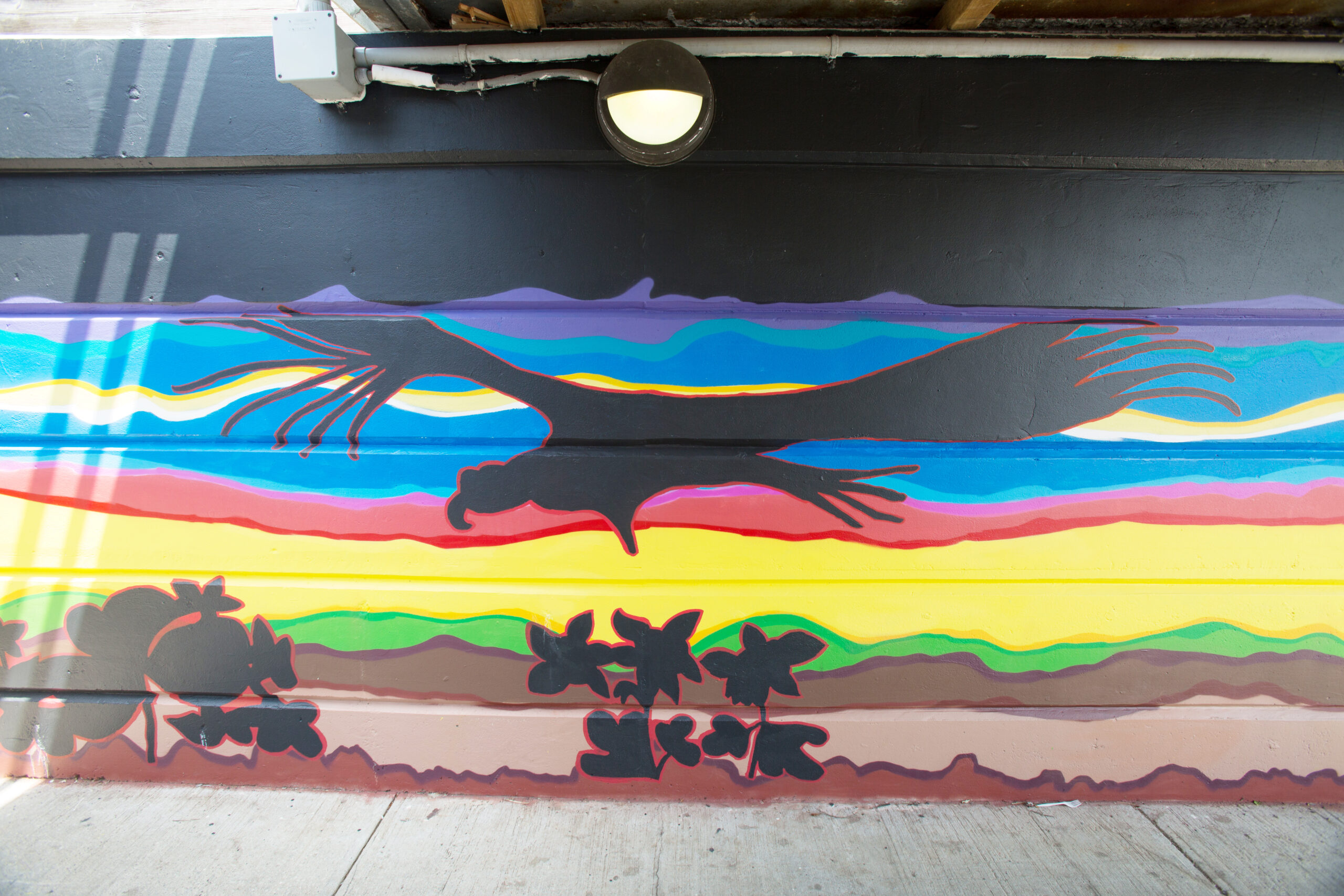
NILO – Native Inmate Liasion Officers
The NILO program provides outreach support to indigenous men who are incarcerated. Our liaison officers visit inmates to provide counseling, cultural connection, and support. It is an essential service for clients to provide resources for education, employment, housing, health, or other needs following their release.
Cultural and spiritual resources include healing and wellness activities such as sweat lodge ceremonies, healing circles, smudging, and drumming. This ensures indigenous men have the same access afforded to other faith groups. The program also delivers indigenous cultural training for prison staff to foster greater understanding.
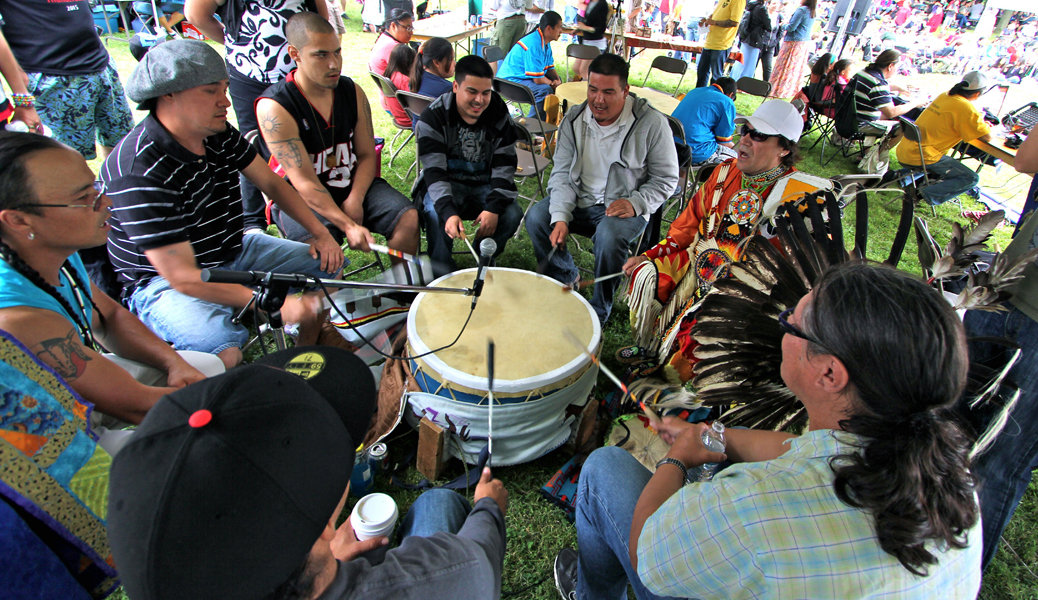
Apaenmowineen: Having Confidence In Myself
Apaenmowineen is a 3-to-6-month program at our Sagatay transitional residence. It helps clients develop the life skills needed to maintain stable housing, find employment and build community. The workshops include:
- Healthy living
- Literacy
- Employment
- Financial literacy
- Creative writing
- Photography
- Drumming
- Community gardening
- Sharing circles
- Traditional teachings
- Cree history and culture
- Cree language classes
- Addiction counseling
Clients participating in the Apaenmowineen program stay at Sagatay for one year. Once the program is completed, support for affordable, long-term accommodations is provided, including the two organization-owned properties.
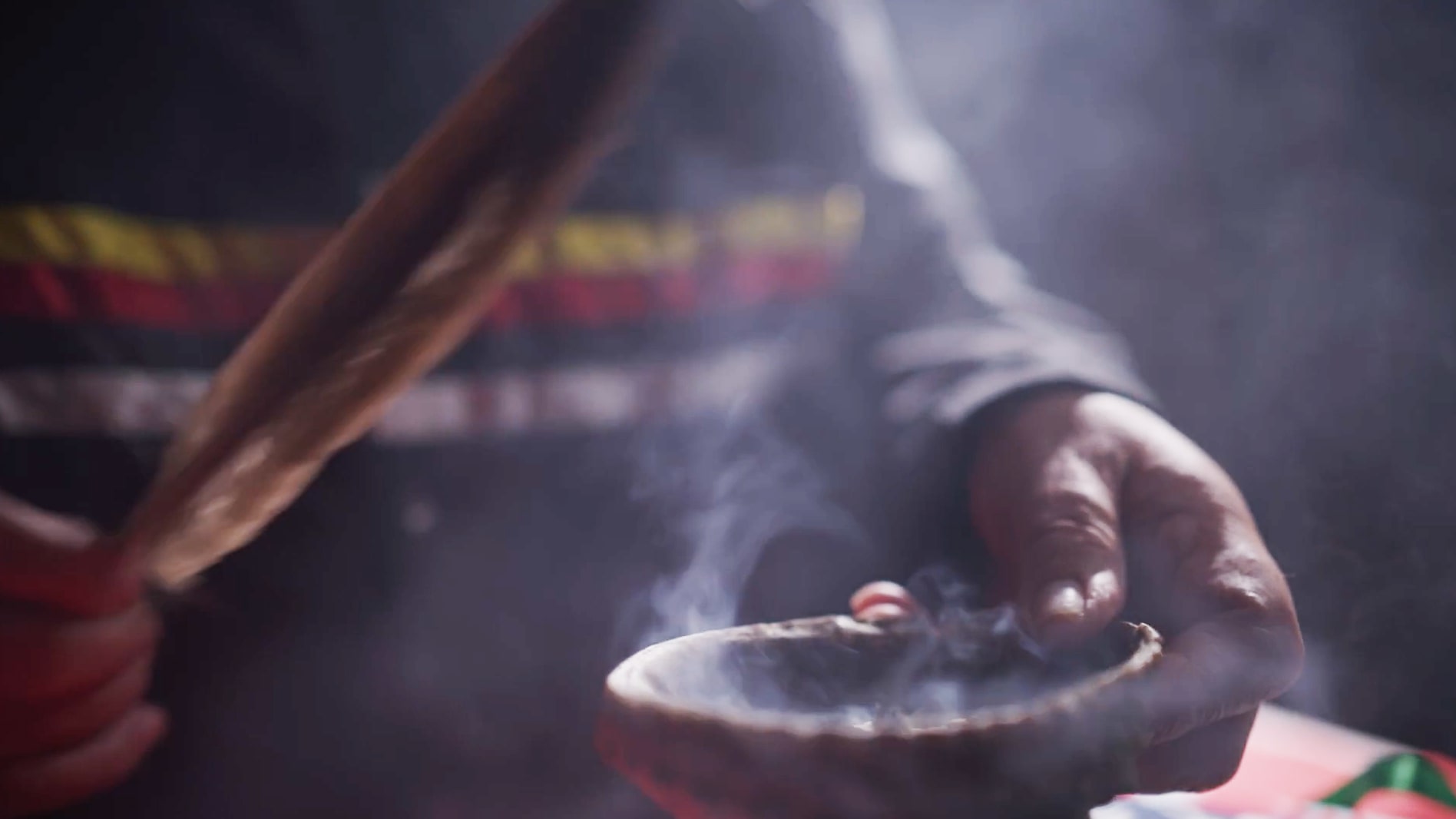
Ngim Kowa Njichaag: Reclaiming My Spirit
The Ngim Kowa Njichaag program aims to assist all Na-Me-Res clients in claiming their culture, identity, role, and responsibilities. Re-connecting with their culture is vital for our clients. It helps them increase self-esteem, find community and meet their goals. All ceremonies are provided in a healing environment and facilitated by an Oshkabaywis (spiritual helper.)
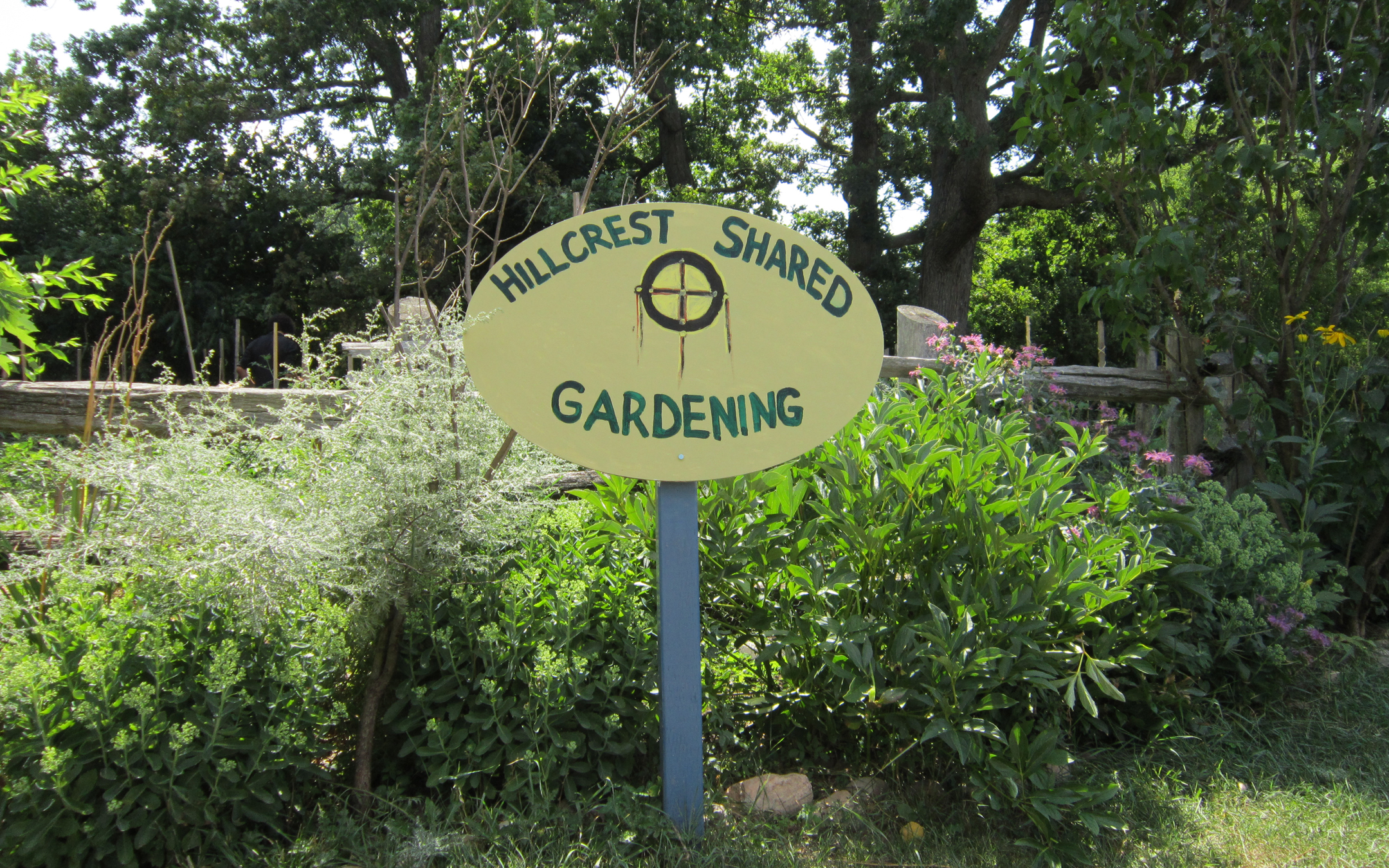
Medicine Wheel Garden
The Medicine Wheel Garden is Toronto’s first Aboriginal community garden. It began in 2013 when Elder Jacqui Lavalley named this green space “Mashkikii;aki’ing” (Medicine Earth). It is a one-of-a-kind sacred space that gives the men of the Apaenmowineen program an opportunity to learn more about gardening and Aboriginal medicinal plants.
It nurtures teamwork, healthy living, and employment skills. They also reap the rewards of their hard work as the harvested plants and vegetables are used for cooking healthy meals for the Na-Me-Res residences. Growth in this garden comes not only from the plants but also from the participants’ hearts.

The Espaniel/Menzies Education Fund
The Espaniel/Menzies Education Fund offers an annual bursary to two Indigenous men to help them further their education through secondary, post-secondary, or apprenticeship programs. These $500 awards can be used towards school-related expenses such as tuition, books, supplies, or transportation.
Nursing Health Services
The Nursing program seeks to support the residents’ health in a holistic and flexible manner. The Nurse responds to emergent health issues as they arise. Residents are supported to navigate the complex healthcare system so they can manage their health. Residents have access to a Primary Care Physician and Psychiatrist who are on-site weekly. The Nurse works alongside the providers to create comprehensive care plans to address residents’ complex health concerns and needs. The Nurse makes connections and refers residents to interdisciplinary health services within the community. The Nurse provides case management and works with residents to co-create holistic care plans that focus on physical, mental, emotional, and spiritual well-being.